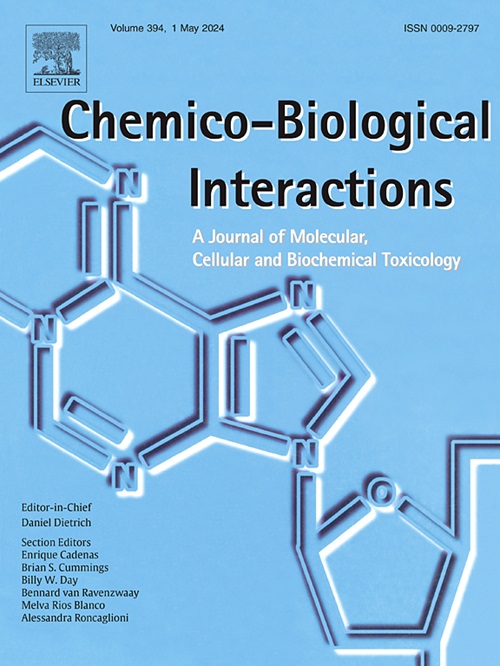Potent inhibition of human monoamine oxidase A and B by phenolic compounds and polyunsaturated fatty acids in tobacco smoke
IF 4.7
2区 医学
Q1 BIOCHEMISTRY & MOLECULAR BIOLOGY
引用次数: 0
Abstract
Smoking is a main cause of premature death and preventable disease in the world. Interestingly, animal studies indicate that inhibition of monoamine oxidase (MAO), key enzymes for the degradation of neurotransmitters, increased self-administration of nicotine. The purpose of this study was to identify and characterize the potential MAO inhibitors in tobacco smoke responsible for MAO inhibition in smokers. A bioassay-guided isolation from an extract of tobacco smoke showed that catechol, 4-methylcatechol, hydroquinone, α-linolenic acid, and linoleic acid all displayed potent human MAO inhibitory activity. Additionally, the tobacco catechols 4-ethylcatechol and 4-vinylcatechol were included to test their inhibitory potencies. Catechol, 4-methylcatechol, 4-ethylcatechol, and hydroquinone are potent and irreversible MAO inhibitors. Among the phenolic compounds tested, 4-methylcatechol and 4-ethylcatechol inhibited MAO A with IC50 values of 10.0 and 12.6 μM, respectively, reducing to 0.27 and 0.43 μM after 1 h preincubation. In addition, α-linolenic acid and linoleic acid competitively inhibited MAO A with Ki values of 10.50 and 6.95 μM, respectively. These results suggest that MAO inhibition by phenolics and polyunsaturated fatty acids in tobacco smoke may be important contributors to the MAO inhibition experienced by smokers and to the enhancement of nicotine dependence this MAO inhibition is believed to cause.
烟草烟雾中酚类化合物和多不饱和脂肪酸对人单胺氧化酶A和B的有效抑制。
吸烟是世界上过早死亡和可预防疾病的主要原因。有趣的是,动物研究表明,抑制单胺氧化酶(MAO),神经递质降解的关键酶,增加尼古丁的自我给药。本研究的目的是确定和表征烟草烟雾中导致吸烟者MAO抑制的潜在MAO抑制剂。从烟草烟雾提取物中分离得到的生物测定方法表明,儿茶酚、4-甲基儿茶酚、对苯二酚、α-亚麻酸和亚油酸均具有抑制人MAO的活性。此外,还采用烟草儿茶酚4-乙基儿茶酚和4-乙烯基儿茶酚进行抑菌试验。儿茶酚、4-甲基儿茶酚、4-乙基儿茶酚和对苯二酚是有效的、不可逆的MAO抑制剂。4-甲基儿茶酚和4-乙基儿茶酚抑制MAO A的IC50值分别为10.0和12.6 μM,预孵育1 h后分别降至0.27和0.43 μM。α-亚麻酸和亚油酸在Ki值分别为10.50和6.95 μM时对MAO A具有竞争性抑制作用。这些结果表明,烟草烟雾中的酚类物质和多不饱和脂肪酸对MAO的抑制可能是吸烟者经历MAO抑制的重要原因,并且这种MAO抑制被认为是导致尼古丁依赖性增强的原因。
本文章由计算机程序翻译,如有差异,请以英文原文为准。
求助全文
约1分钟内获得全文
求助全文
来源期刊
CiteScore
7.70
自引率
3.90%
发文量
410
审稿时长
36 days
期刊介绍:
Chemico-Biological Interactions publishes research reports and review articles that examine the molecular, cellular, and/or biochemical basis of toxicologically relevant outcomes. Special emphasis is placed on toxicological mechanisms associated with interactions between chemicals and biological systems. Outcomes may include all traditional endpoints caused by synthetic or naturally occurring chemicals, both in vivo and in vitro. Endpoints of interest include, but are not limited to carcinogenesis, mutagenesis, respiratory toxicology, neurotoxicology, reproductive and developmental toxicology, and immunotoxicology.

 求助内容:
求助内容: 应助结果提醒方式:
应助结果提醒方式:


